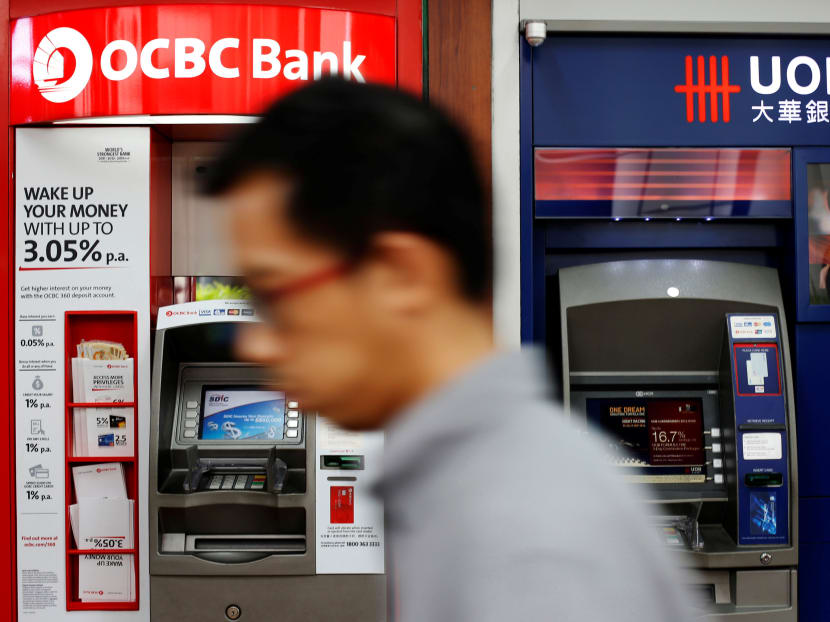OCBC, UOB report mixed performances
SINGAPORE — Oversea-Chinese Banking Corp (OCBC) and United Overseas Bank (UOB) — the first two Singapore-listed banks to release their financial results on Thursday (July 28) — turned in mixed performances but cautioned that the oil and gas sector remains a concern going forward.
SINGAPORE — Oversea-Chinese Banking Corp (OCBC) and United Overseas Bank (UOB) — the first two Singapore-listed banks to release their financial results on Thursday (July 28) — turned in mixed performances but cautioned that the oil and gas sector remains a concern going forward.
OCBC, the second-largest lender in South-east Asia, saw a 15 per cent year-on-year decline in net profit for the April-to-June period to S$885 million, due to lower insurance and investment income. This is below the average S$898 million that analysts forecast in a Bloomberg poll.
For the same period, smaller rival UOB posted a 5.1 per cent year-on-year increase in net earnings to S$801 million as higher trading income helped offset a flat net interest income, said the bank on Thursday. This beat the S$769 million average forecast by analysts in a Bloomberg survey.
The two banks also reported contrasting results to their respective loan books. At OCBC, gross loans stood at S$205 billion as of June 30, down 2 per cent from a year ago. The bank’s net interest margins (NIMs) — a measure of lending profitability — for the quarter inched up 1 basis point to 1.68 per cent.
“We have not grown our loans because loan demand is indeed very weak and under the current environment, we’re also more cautious in entering into new segments … that we do not have relationships with,” said OCBC’s CEO Samuel Tsien.
“Whenever there is economic slowdown, the most important thing is client selection and we have decided that … we will only be going into segments that we know well,” he said, adding that he expects “very low single digit” loan growth for the full year.
Over at UOB, gross loans grew 4.9 per cent year-on-year to S$212 billion as of June 30. The bank’s NIMs fell by 9 basis points to 1.68 per cent on the back of a declining interest rate environment, while non-performing loans (NPLs) rose to S$3.1 billion from S$2.5 billion a year ago.
“While our performance reflects the effects of a cyclical slowdown, with softer revenue growth and rising NPLs, we kept our balance sheet strong,” said UOB group’s deputy chairman and CEO Wee Ee Cheong.
He said the group will “stay vigilant and nimble” while setting its sights on the region’s long term prospects as growth in the region is expected to be modest.
“In the next one to two years, the key concern for us is more on the oil-and-gas sector and supporting industries for the oil and gas sector,” added Mr Wee.
The oil and gas sector was also flagged as an area to watch by OCBC. The bank’s non-performing assets stood at S$2.49 billion, up from S$1.49 billion, mainly due to the classification of a number of large corporate accounts associated with the oil and gas support services sector.
Mr Tsien did not rule out the possibility that the bank’s non-performing assets could continue to rise if more accounts in the sector face weakening prospects.
“Although the oil price has risen from its lowest level … we cannot say that this is the bottom of the oil and gas sector yet, I believe there are at least two more quarters to go before we can have some certainty,” he added.
At Thursday’s close, shares of OCBC were down 0.56 per cent to S$8.80 per share, while UOB shares were 1.27 per cent lower at S$18.70 per share. The benchmark Straits Times Index ended Thursday’s session at 2,918.62 points, 0.78 per cent weaker than the previous day.







